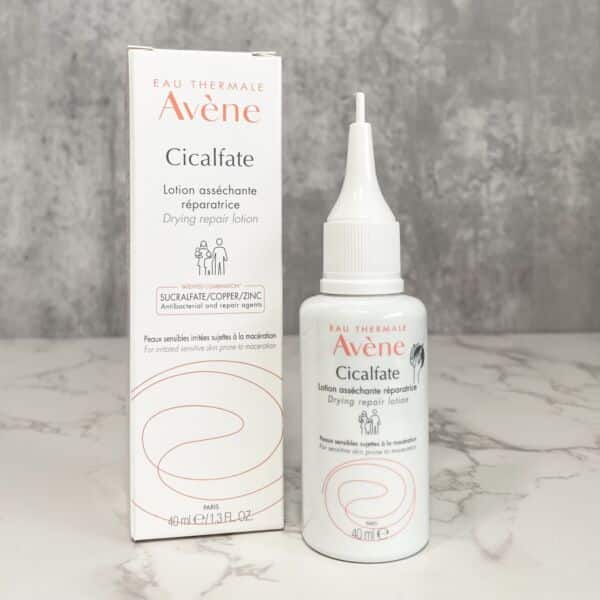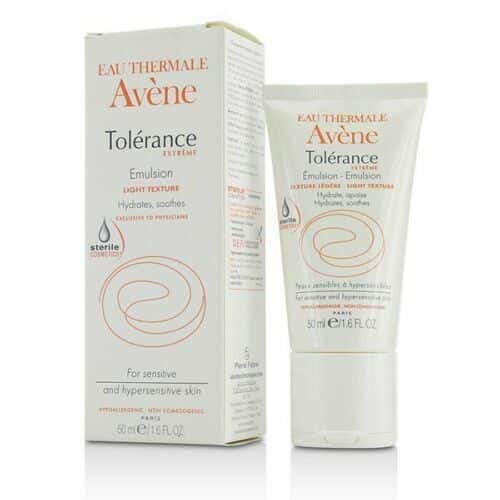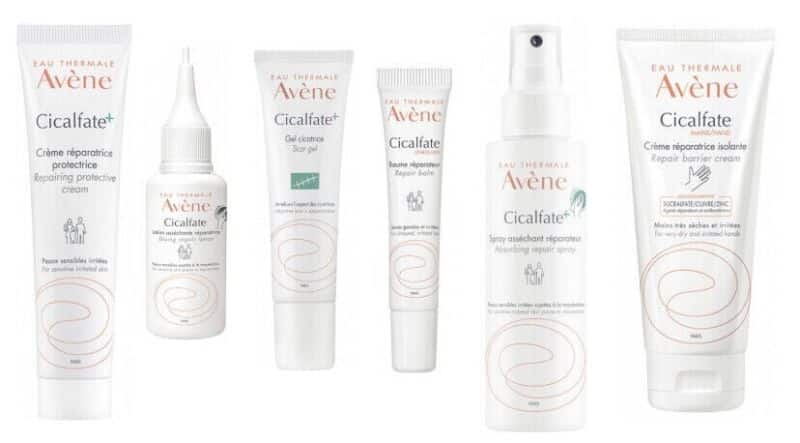Avene Cicalfate vs Tolerance: Which is Better for Sensitive Skin?
Sensitive skin requires extra care and attention when it comes to skincare. Choosing the right products that are gentle and effective can be a daunting task.
And that’s because they are literally thousands of brands out there.
However, it can be easy once you have a brand in mind. In the case of Avene, the brand has both Cicalfate and Tolerance, which may be similar but have subtle differences.
In this article, we will compare these two popular skincare products from Avene – Cicalfate and Tolerance – and help you decide which one is better for your sensitive skin.
Avene Cicalfate vs Tolerance: Let’s Review Them
Avene Cicalfate Cream

Avene Cicalfate Cream is a popular skincare product designed to repair and soothe irritated and damaged skin.
The cream is formulated with a blend of ingredients, including copper sulfate, zinc sulfate, and Avene Thermal Spring Water.
It claims to promote healing and repair skin while reducing inflammation and redness.
One of the main benefits of Avene Cicalfate Cream is its ability to form a protective barrier on the skin.
This barrier helps to prevent further damage to the skin while promoting healing. The cream is also non-comedogenic, meaning it won’t clog pores and cause breakouts.
Avene Tolerance Emulsion

Avene Tolerance Emulsion is a lightweight moisturizer designed for sensitive and intolerant skin.
The emulsion is formulated with a minimal amount of ingredients, making it a popular choice among those with extremely sensitive skin.
It claims to hydrate and soothe skin while strengthening the skin’s natural barrier.
One of the key features of Avene Tolerance Emulsion is its hypoallergenic formula. It is free from fragrances, preservatives, and other irritants that can cause allergic reactions or sensitivity.
The emulsion is also absorbed quickly into the skin, making it a great option for those with oily or combination skin.
Avene Cicalfate vs Tolerance: Comparison
Now that we have looked at the key features of both Avene Cicalfate Cream and Tolerance Emulsion, two products from the Cicalfate and Tolerance range, let’s make a broader comparison based on a few key factors.
Note: I’ll make reference to both Cicalfate Cream and Tolerance Emulsion throughout…
Range
The Cicalfate range includes products like restorative creams, lotions, and hand creams.
These products cater to a variety of needs, from post-procedure care to daily skin irritations.
While Cicalfate can be used by all skin types, it’s particularly beneficial for those experiencing localized skin issues or needing heightened repair and protection.
On the other hand, the Tolerance range is more streamlined, focusing primarily on essential care. This includes their Extreme Cleansing Lotion, Emulsion, and Mask.
Tailored for hypersensitive and allergic skin, it’s a savior for those who have had reactions to other products in the past or for skin that’s currently in a reactive state.
Ingredients
Avene Cicalfate Cream is formulated with copper sulfate, zinc sulfate, and Avene Thermal Spring Water, which are known to promote healing and soothe irritated skin.
Avene Tolerance Emulsion, on the other hand, has a minimal amount of ingredients and is free from fragrances and preservatives, making it a great option for those with extremely sensitive skin.
Texture
Generally, the Cicalfate range offers a thicker, more emollient texture. The products in this line are designed to form a protective barrier on the skin, which is why they tend to be more substantial and have a creamier consistency.
Tolerance products have a lightweight texture. They’re quickly absorbed and designed to deliver hydration without weighing the skin down or causing any congestion.
Hydration
Both Avene Cicalfate Cream and Tolerance Emulsion claim to provide hydration to the skin.
However, Avene Tolerance Emulsion is specifically formulated as a moisturizer, making it a more effective option for those with dry or dehydrated skin.
Soothing Properties
Avene Cicalfate Cream is specifically designed to soothe and repair irritated and damaged skin.
It is a great option for those with conditions such as eczema, psoriasis, or rosacea. Avene Tolerance Emulsion, on the other hand, is formulated to provide a general soothing effect to sensitive and intolerant skin.
Price
Avene Cicalfate Cream is generally more expensive than Avene Tolerance Emulsion. This is due to the cream’s specialized formula and targeted benefits.
User Reviews
Many users applaud Cicalfate for its quick healing abilities, especially for random skin irritations or post-procedural care. The creamy texture is often mentioned as being nourishing, although a few might find it too heavy for everyday use.
Reviews frequently highlight the gentle nature of the Tolerance range. Users with a history of skin reactivity or allergies appreciate its minimalistic approach, which reduces the risk of flare-ups. Some, however, wish for a broader range of products within this line to cater to varying skincare steps.
Final Words: Choosing One
Overall, both Avene Cicalfate Cream and Tolerance Emulsion have their unique features and benefits.
If you have specific skin concerns, such as eczema or psoriasis, Avene Cicalfate Cream may be a better option for you.
However, if you have extremely sensitive skin or are looking for a general moisturizer that is gentle and effective, Avene Tolerance Emulsion may be a better fit.
It’s important to note that everyone’s skin is unique, and what works for one person may not work for another. It’s always a good idea to patch-test a new product before applying it to your entire face, especially if you have sensitive skin.
Related Posts:
- Battle of Moisturizers: Belif Moisture Bomb or Laneige Water Bank Cream
- Cetaphil vs Vanicream: Battle of the Cleansers (Who Wins?)
- Cetaphil vs Aquaphor: Healing Ointment vs Moisturizing Lotion (The Difference)
We earn commissions if you purchase thru our link. Majority of products aren’t tested by the site owner (except a few). Content is from the research and feedback of users.

